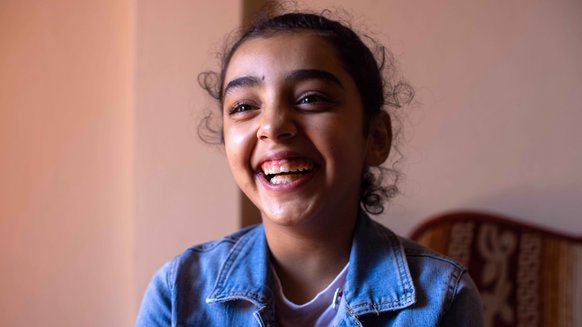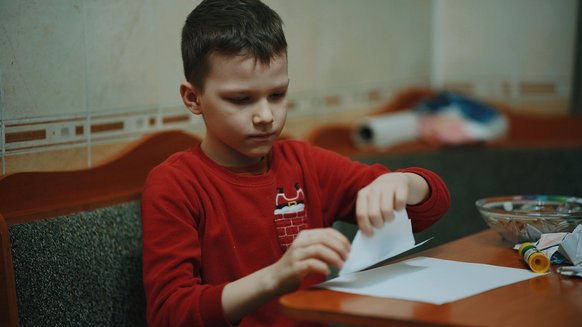Roda (12) Has Many Dreams for the Future, but Her Biggest One of All Is Simple
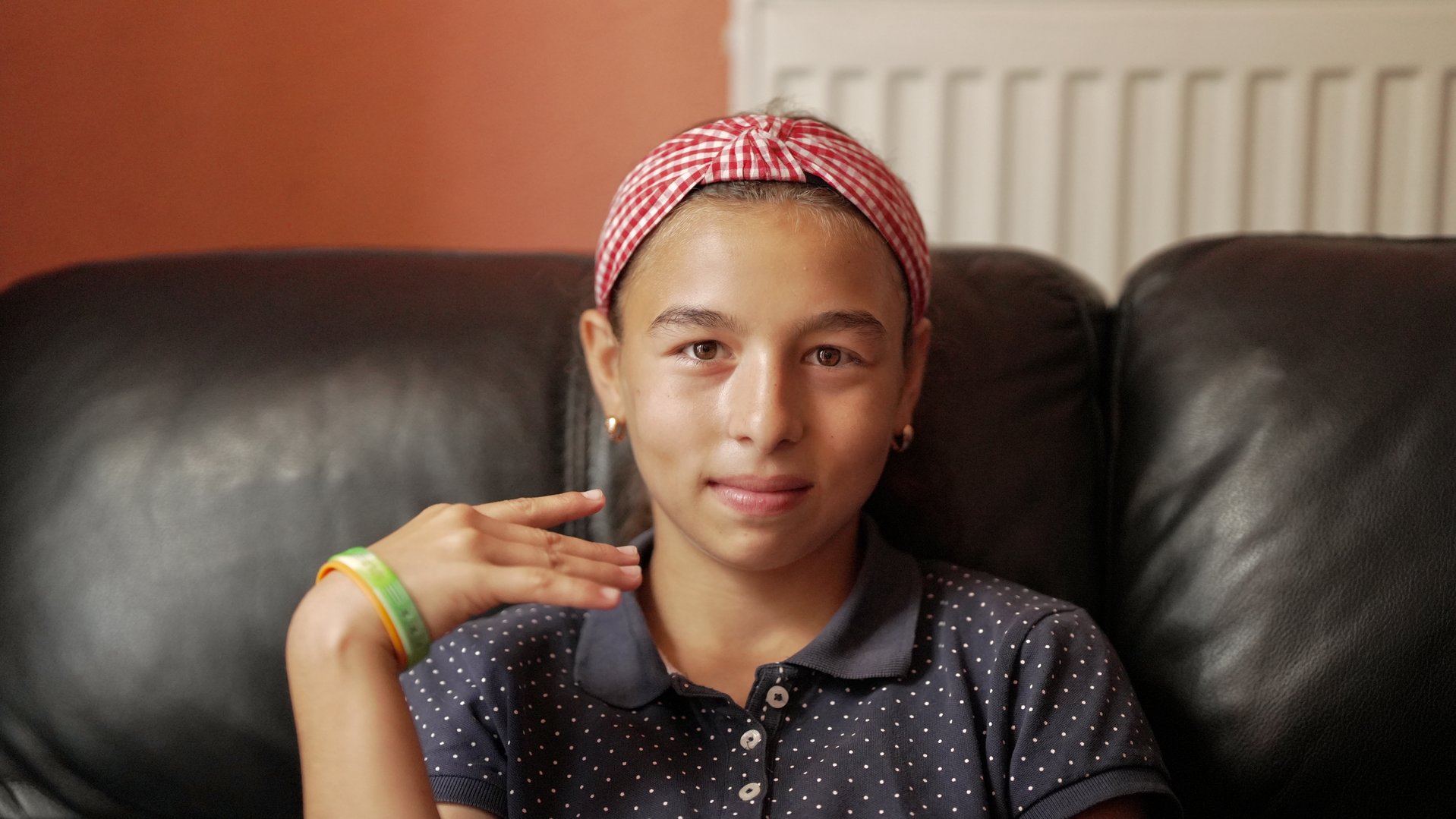
Making friends
We first meet Roda on a hot Summer’s day in Uzhhorod, Ukraine - a historic city on the border with Slovakia in the far west of the country. As soon as we enter the dusty reception of a former restaurant turned makeshift shelter, we feel the curious stares of Roda and her friends giggling in the corner on a black leather sofa.
As I drop my backpack and get acquainted with the staff, cameraman Michael is already making friends with Roda and her posse. He snaps a few photos and off they go, posing as if they have done this a million times before. “Do you want to take a photo of me now?”, asks Michael, placing the thousands-of-euros worth of equipment breezily in their hands. It quickly becomes clear that Roda is in charge as she clicks the button and captures Michael, tumbling out into the sun-soaked courtyard.
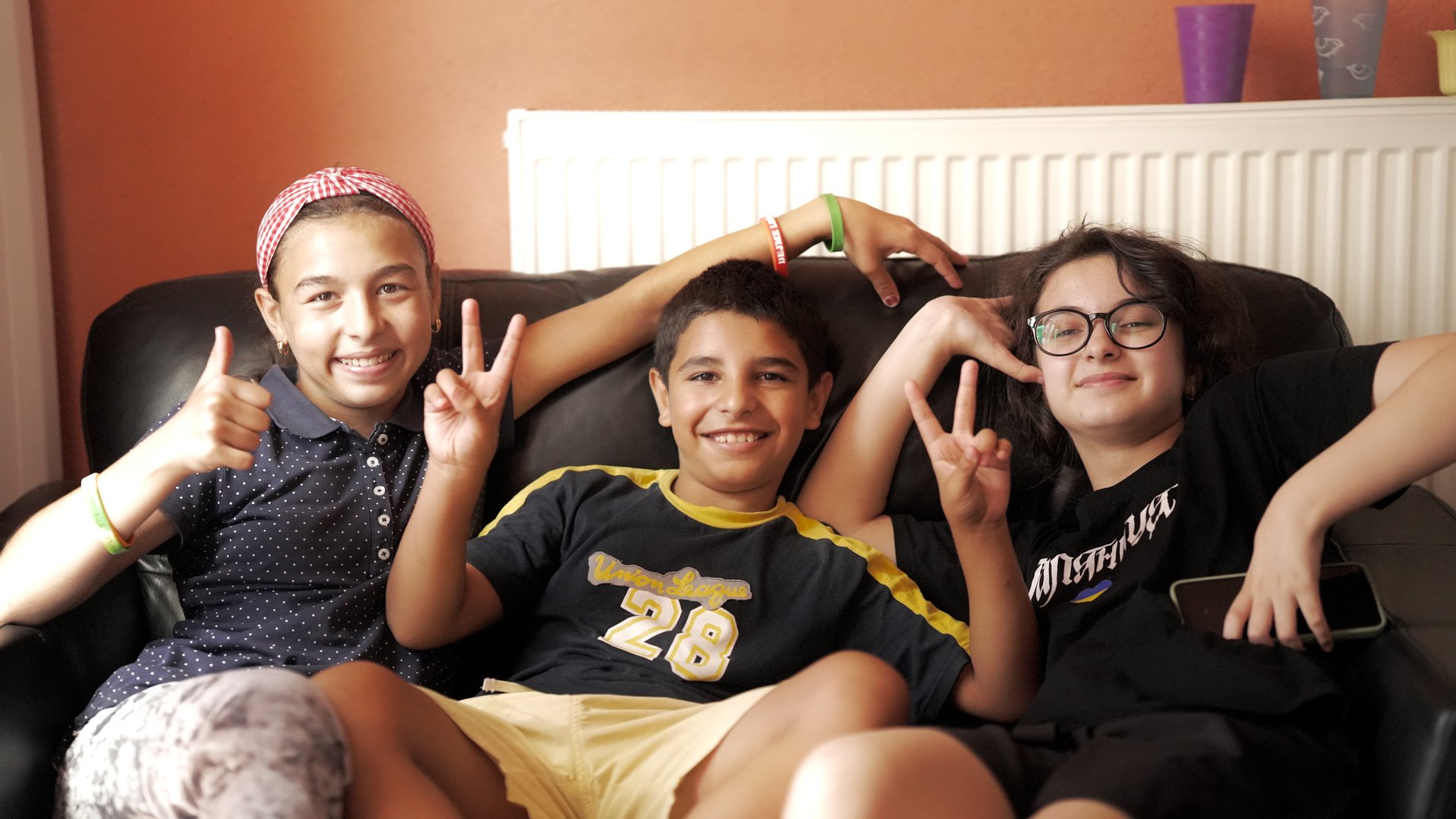
Roda only met her friends a few weeks ago but they've already formed an unbreakable bond
Photo: Michael Jessurun
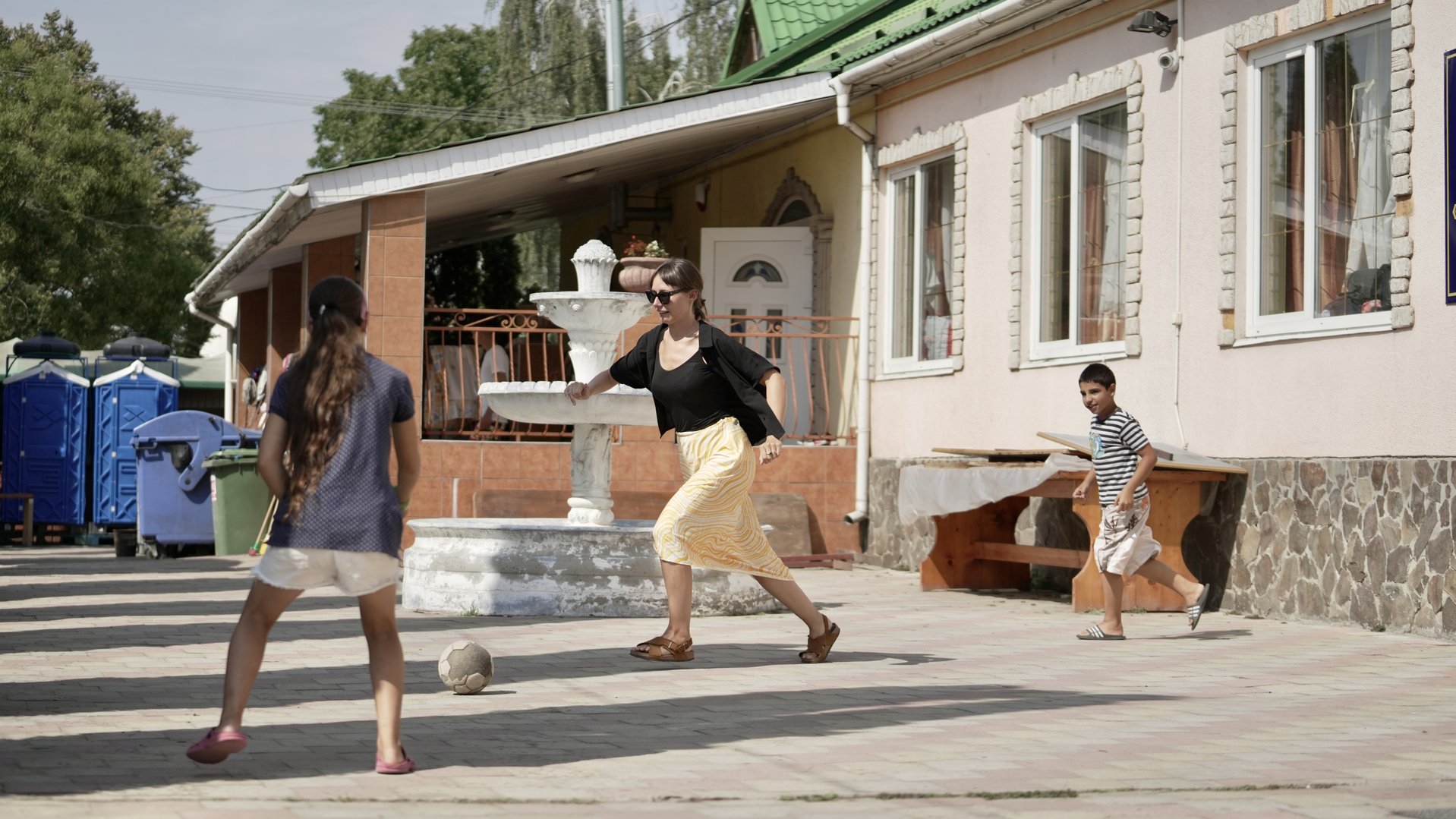
Football, UNO and other games at the shelter are helping children heal from their experiences
Photo: Michael Jessurun
The day the war came
A game of football unfolds with Roda unsurprisingly also an expert dribbler. All smiles and laughter, it’s hard to comprehend what her and her newfound friends have lived through in the past few months.
“I remember the day the war came,” she says calmly. “Me and my friend were leaving the house to go to boxing training. We went outside and heard a loud noise.”
I decide to pause to ensure she doesn’t feel any pressure to recount such difficult events, but Roda is eager to tell her story and quickly continues without fear or hesitation. “It was kind of like a helicopter but when we turned around we saw a rocket. Then, there was a big explosion in the nearby village. It was so strong that everything was trembling. It was very scary.”
Fleeing home
Abandoning training, she and her friend ran inside. Glued to the spot, they waited for her family to come home. Roda: “It was getting dark and at some point I realised that I had left my puppy outside in the garden. I went out to grab him and I saw the sky light up with fire. It was very dangerous to stay so that’s why we left.”
The next morning Roda and her grandmother fled Odesa with nothing but a few suitcases. “My puppy was too tiny to bring with us on the train so he stayed at home with my uncle,” she says.
This is the first time I see pain in her eyes.
Safe haven
Two days later the family made it to Uzhhorod, among some 4000 people who arrived by train in those first days.
“Due to its positioning on the Slovakian border, and close to Hungary, my city became a safe haven for families fleeing the violence," says Oskana, one half of the two-woman band that runs the shelter. “We did everything we could to help them - to give them a free house, some food and basic things for their survival, but we were not equipped to handle it. Many people were hysterical; many were in stress.”
For seven years, Oksana has worked for local NGO BLAHO, an organisation that provides education for marginalised Roma children. But, that day, everything changed. “It was like time stopped; normal life stopped,” she says.
By March, Oksana and BLAHO Director, Eleonora had opened a shelter. Oksana: “We rented a hotel and converted it into a shelter. The rooms filled up immediately so we bought mattresses and laid them out in the hotel restaurant.”
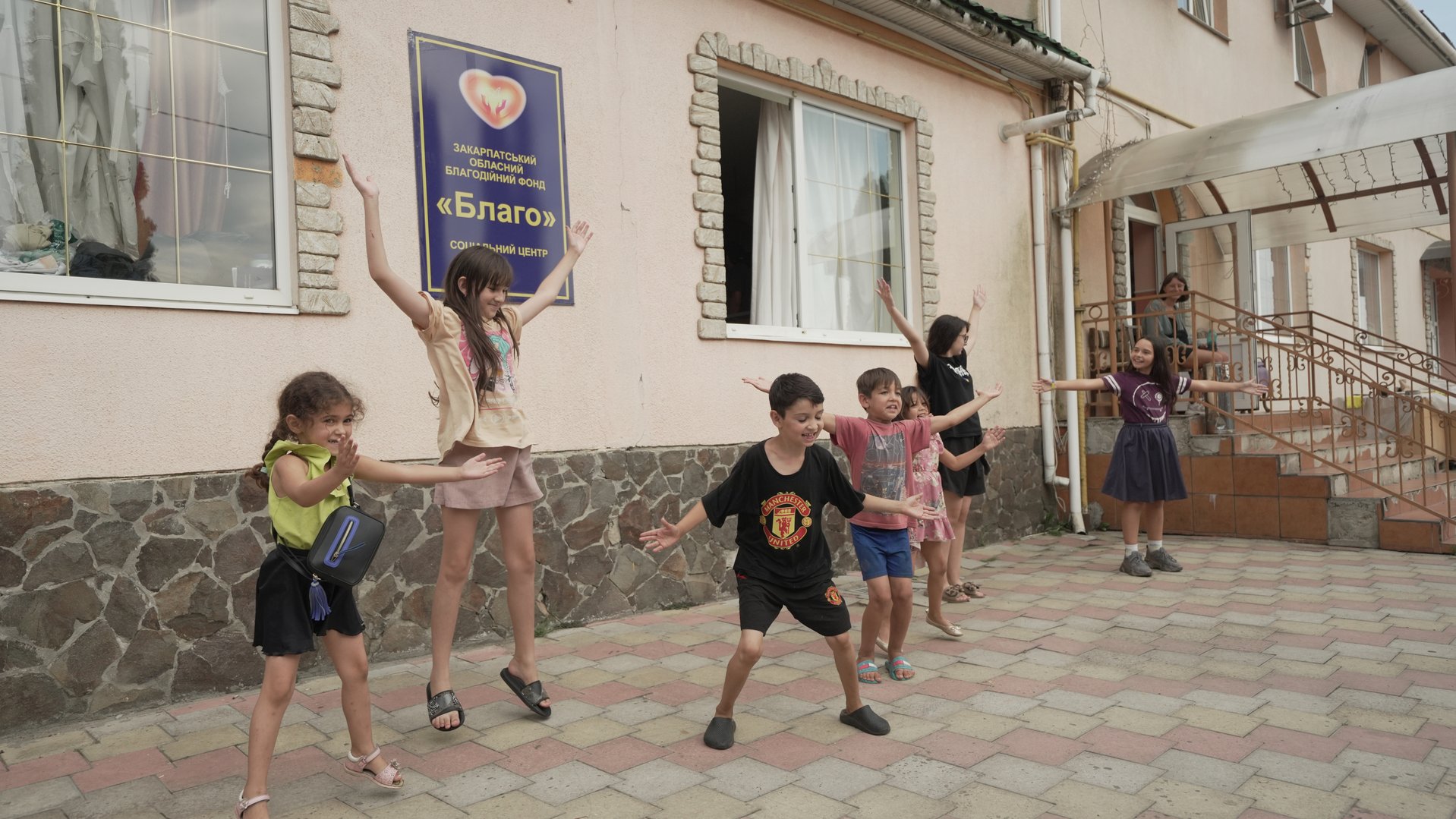
"The war has brought Ukrainian and Roma children together", says Oksana
Photo: Michael Jessurun
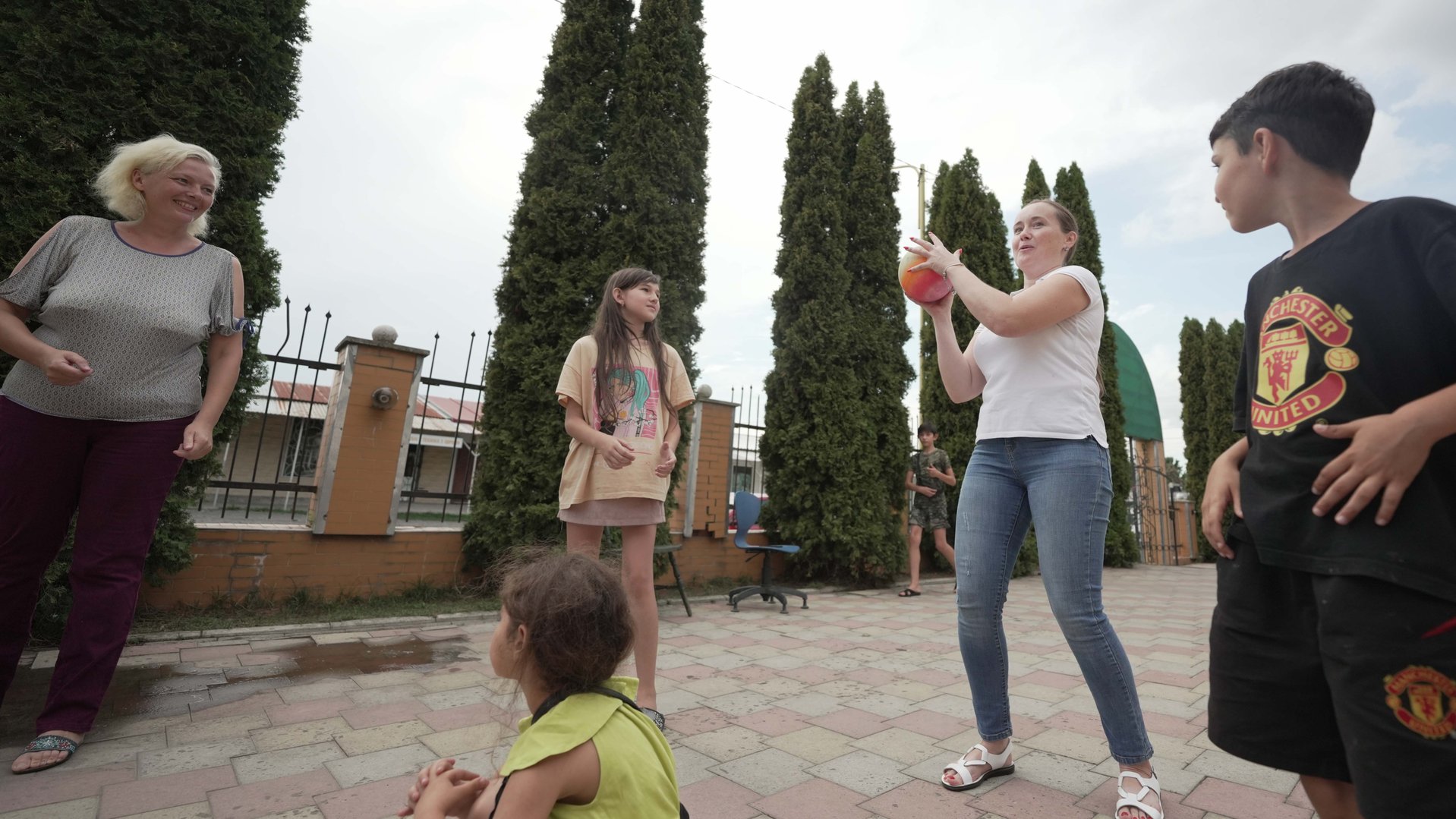
Oksana [pictured] is one of a two-woman band who run the shelter
Photo: Michael Jessurun
Skill sharing
The hardest thing about this transition, Oskana explains, was the sudden need to support these families not only with food, water and a place to rest but also psychologically. As part of War Child's emergency response, that’s where we came in.
“We weren’t physically in Ukraine when the war started and we quickly assessed that - at that moment - we weren’t best placed to move in,” says War Child CEO, Ramin Shahzamani. “Where we could add value was by supporting local partners, just like BLAHO, to respond to people experiencing psychological distress.
“What does a child need when they are distressed? What other behaviours or emotions are likely to present themselves? These were the questions we sought to answer.”
Oksana and a teacher were selected for a three-day online training to help them develop the skills to care for children and parents while also looking after their own mental health. “We were given some exercises and tools to use in our work; to lower stress and support children’s psychological recovery,” says Oksana. “I also use these exercises myself - it has helped a lot.”
Talking and art therapy
In addition to their support, and thanks to War Child funding, professional psychology sessions were also introduced at the shelter. Children get the opportunity once a week to attend a ‘drop in’ session. “I like the psychologist,” says Roda. “One time, when she visited, we made a toy. It’s a little stick person made of clay, sticks and canvas.”
Mostly, Roda sleeps soundly but occasionally she has a bad dream about the rocket she saw flying. “I turn on the light, cuddle my clay toy and then I feel safe,” she says.
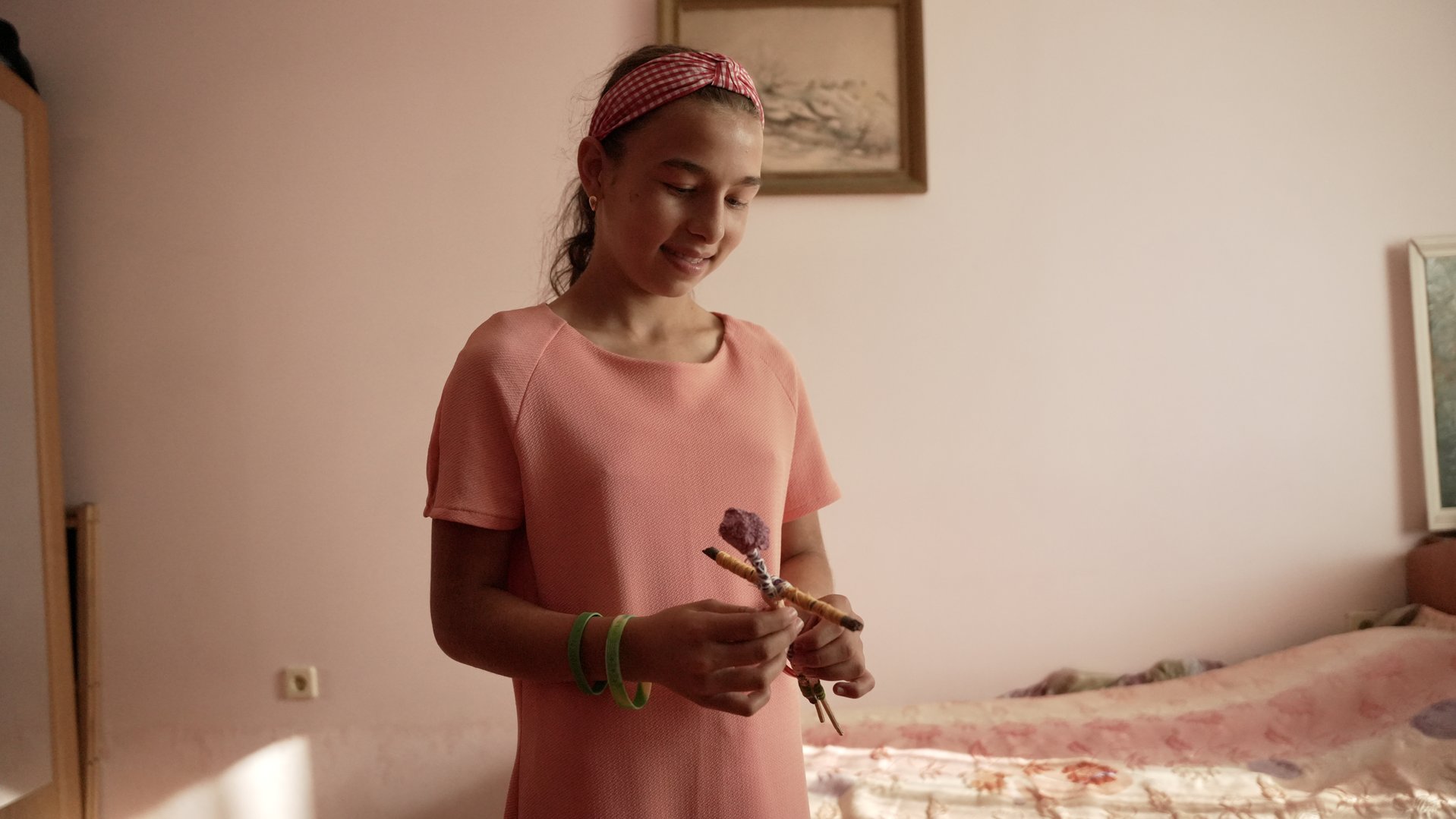
Roda made this toy following a session with the drop-in psychologist
Photo: Michael Jessurun
Symbols of hope
In combination with the psychology, children take part in art therapy as well as educational lessons at the shelter. “We have classes with the teacher and the teacher does this activity where she asks us to sit on a chair,” explains Roda. “She told us that when we sit on the chair we have to close our eyes and make a wish and this wish will come true.”
The first time, Roda made a wish to see a guitar - besides boxing and football she’d also love to try her hand at music. “A bit later a musician from Paris came to the shelter and he had a guitar!”, she says visibly animated. “I couldn’t believe it - my dream came true!”
Running out of steam
While Roda is a beaming symbol of hope and resilience, the latest escalation in violence is even dampening her spirits. “I have a lot of fun here. I have many friends. We have many adventures every day.
“But I miss my puppy. I miss the sea. I miss Odesa. Now, every time I sit on the chair, I make a wish to go back home.”
Of course, we came with a list of pre-prepared questions and one of them is exactly this - what are your hopes, dreams for the future? “This is not a difficult question”, says Oksana. “All they want is to go home. All they want is to have a normal, safe life.
“My people have risen heroically to the challenge, and we will continue to do so but we are tired. It is not so easy to live in this time.”
